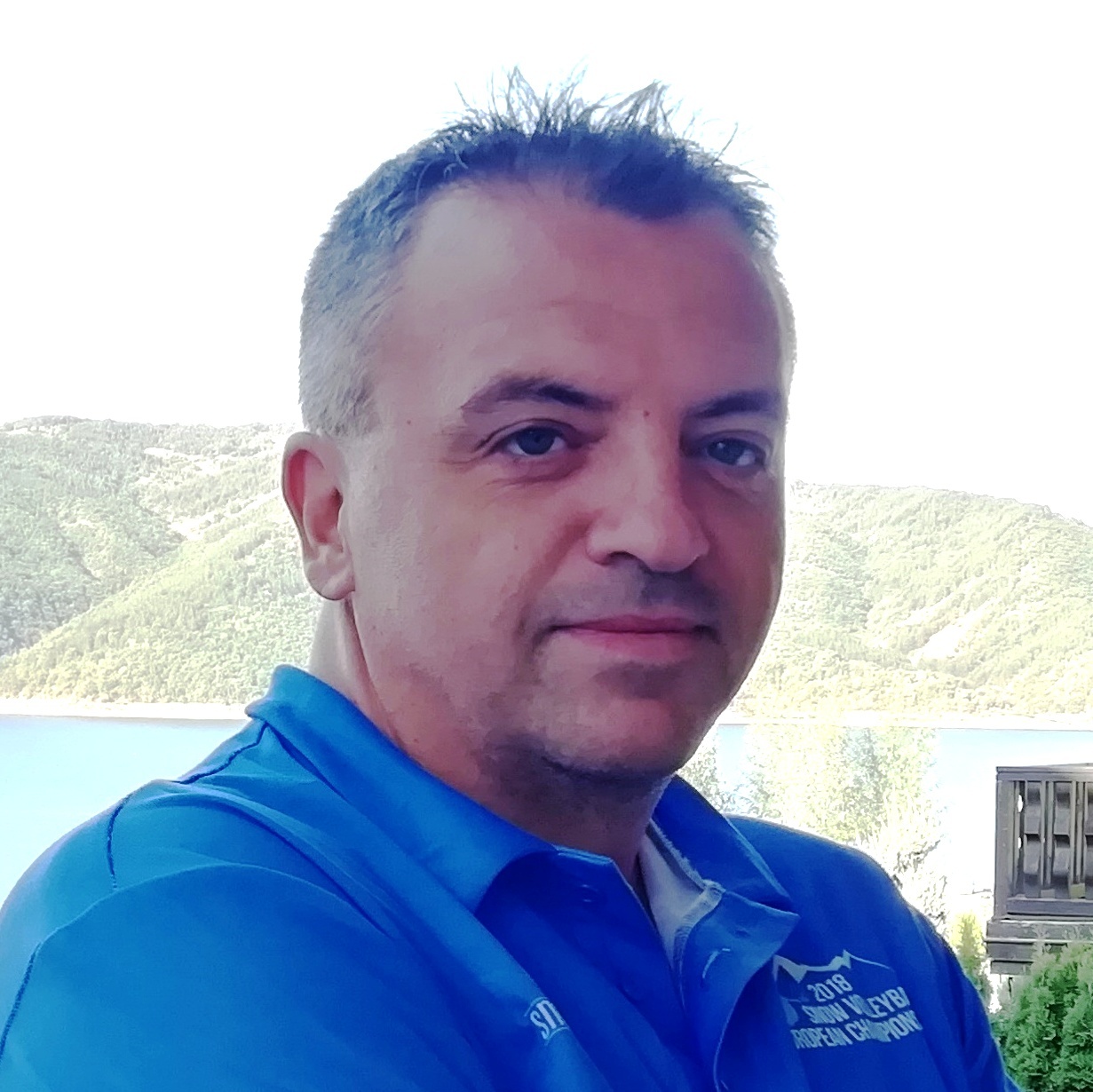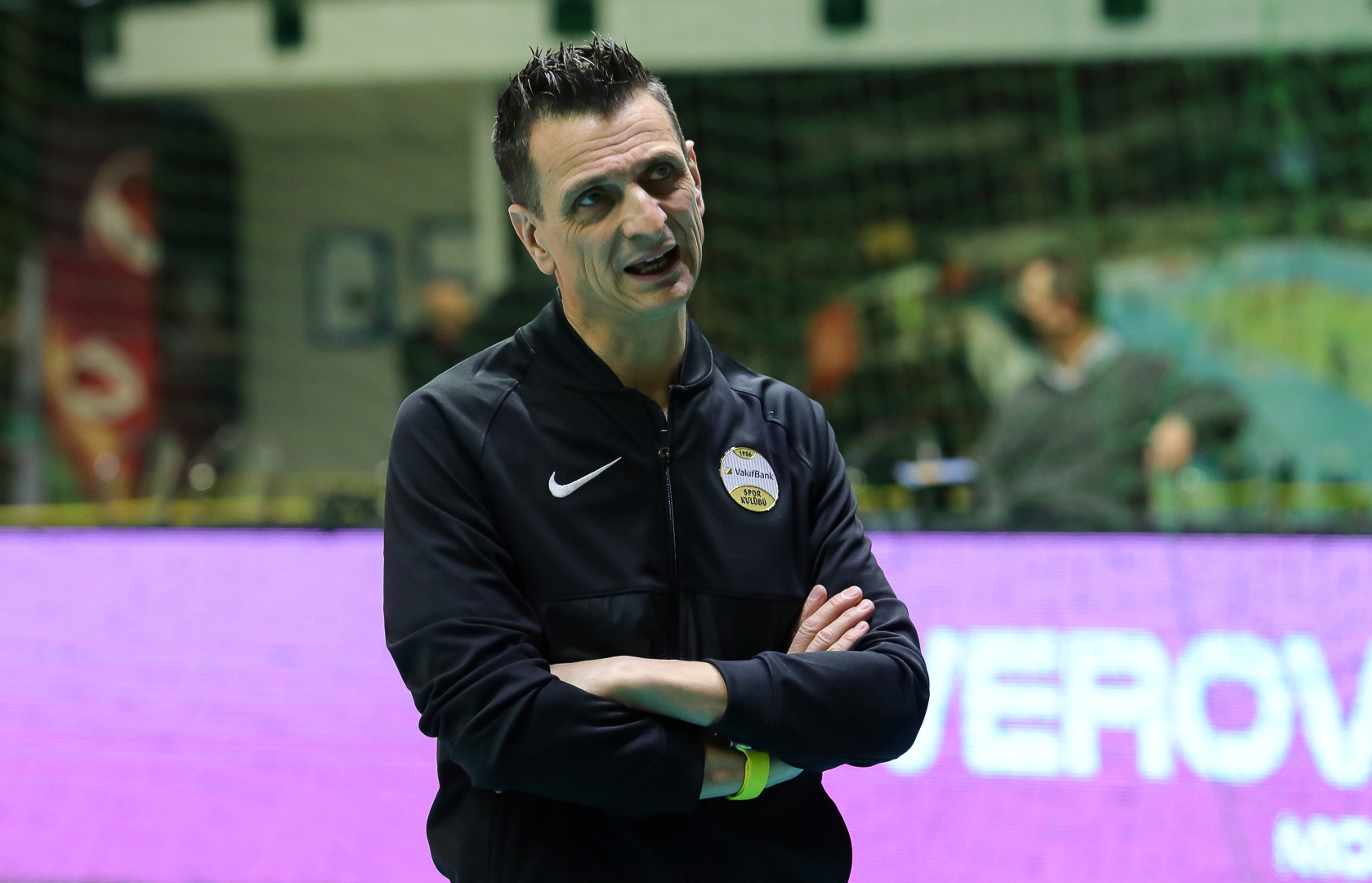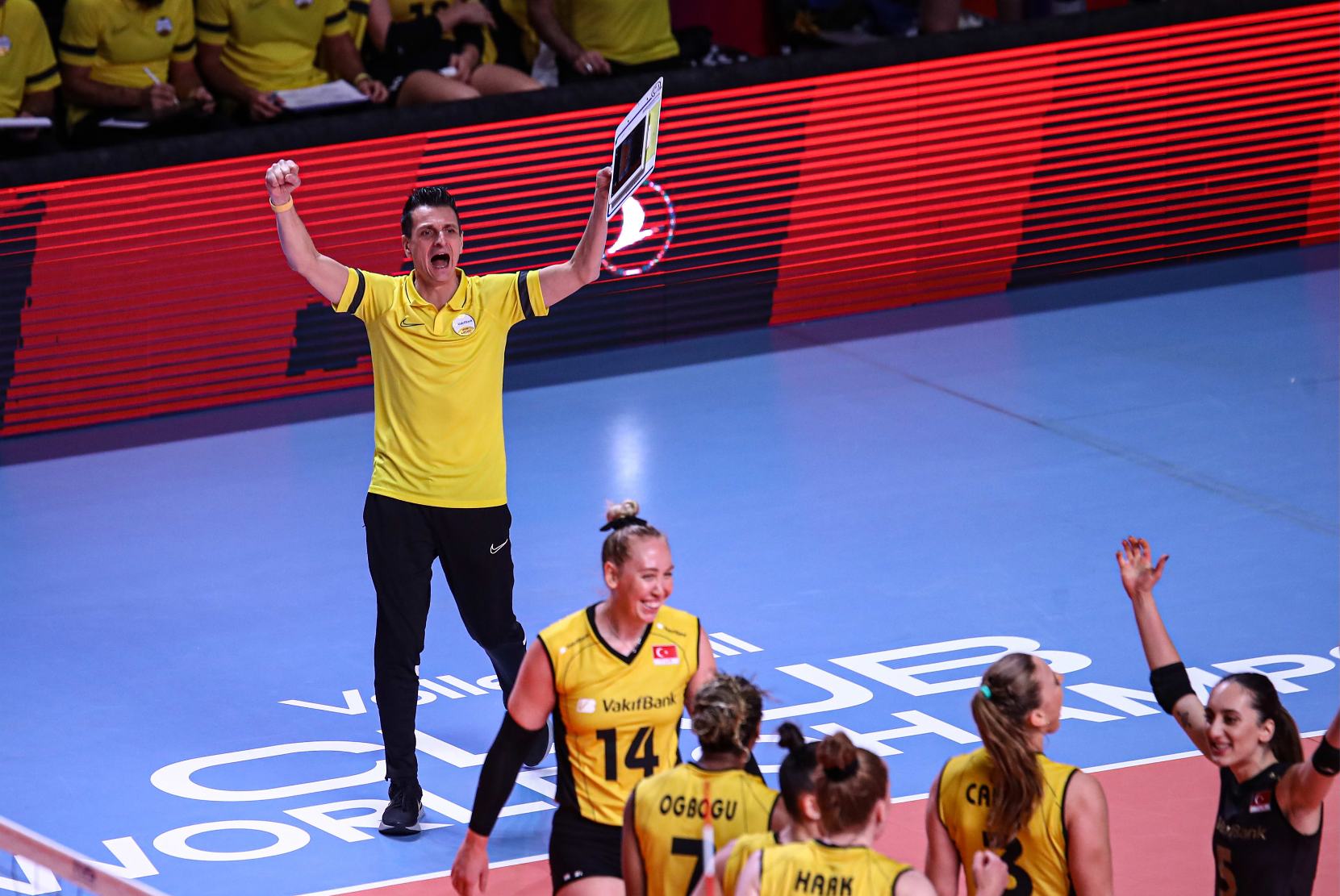Secrets of Coaching Success: Giovanni Guidetti (Part 2)
Interview

If volleyball were a computer game, the players would probably be the little figures moving on the screen and the coach would be the actual gamer, whose mind and fast reactions are put to the test. To help the fans gain more in-depth knowledge about the all-important job of a volleyball head coach from the first-hand source, I am offering this Secrets of Coaching Success series, in which I present some of Europe’s accomplished examples in this profession and try to pick their brains for insider info about how it all gets done.

The third episode of the series features Giovanni Guidetti, the Italian women’s volleyball specialist head coaching Turkey’s VakifBank Istanbul and the Turkish women’s national team. Here is the full interview he gave for cev.eu.
What prompted you to become a volleyball coach?
“There were a lot of people with a sports background in my family, so I grew up with sports in Modena, Italy where there were more lovers of volleyball than of football. In my childhood, winter was incredibly foggy and it was impossible to do something outdoors. In a city that never gives up doing sports because the weather is bad, volleyball was very popular. The sport that everyone loved to play and watch in Modena was volleyball. That's why, over the years, Italy's best men's and women's volleyball teams have emerged from Modena. So, my dream was also to be a professional volleyball player, but it didn't take long for me to realize that I wouldn't be tall enough to be a good player. I didn't want anything other than volleyball so I decided to become a volleyball coach like my father. At the age of 18-19, I started coaching youth and amateur teams.”
What has been the key to your coaching success so far?
“First of all, I believe that being a good person will help you in all areas of life. Dealing with everyone one on one and making them feel that you really care will not only move you forward as a leader, but also increase your team's trust in you. As a leader, I must be both approachable and demanding. The most important thing here is to establish this balance. Also, you should always do your best. Key points of coaching are harmony and stability. It is not always possible to meet at the middle point in team sports consisting of different people and characters. It's my job to make this possible. That is exactly the role of a coach, bringing everyone together to a common point and aiming at the same purpose and desire. If you can make everyone feel this sense of attachment to a dream, you can see that all people work together much better.”
Name something about the coaching profession you think the general public knows little about?
“From a broader perspective, it can be thought that a coach is completely focused on their team. But the most important part of a great team is the staff, which is a team as well that has to be trained and motivated to be able to lead the main team.”
What is the main thing you try to teach your players?
“Pushing at your maximum every day is not an option. It has to be a daily routine like brushing your teeth.”
What is the mental process you go through when making decisions during a match? How often are these decisions spontaneous as opposed to premeditated?
“It is a mix of data from the stomach, the eyes and the heart! Even if it is a spontaneous action that is triggered by the moment during the match, it is the result of a long time of work and passion.”

What is the best way to overcome the language barriers under the pressure of an important timeout?
“Every team establishes their own language and in the pressure moments this is the language of the team! Besides that, eyes and passion you can observe during the match and training are understood by everybody.”
What is the right balance between criticizing the players for the mistakes they've just made and keeping them positively motivated for the rallies to come?
“Being able to make this adjustment is one of the essential coaching skills. Being a professional athlete or a coach is a job of passion. My way of leadership is based on passion. I express my excitement, enthusiasm, ambition and anger because I am there at every moment of the match or the training, not only with my mind, but with my heart, my soul and my whole being. I am as I am. I love to win. I am doing everything to win. Sometimes I get angry. I don't have much tolerance for error. But as I said, you can't just be angry. You should also embrace your players. This is a work of balance. You have to both criticize and motivate your players. When you create the right relationship with the players there is no criticism, just suggestions and help, sometimes with a high voice.”
Do you enforce strict regimes for the players outside the gym or do you let them decide for themselves as long as they deliver during trainings and matches?
“I start every season with my rules board that is a big zero. I need 100% in every team activity and people on time! All the rest, I really don’t care! Players take millions of decisions and responsibilities in every match, so why do I have to decide for them outside the gym? Trust is the key.”
Is there a coach, from volleyball or another sport, you look up to and follow as a role model?
“My idol was Karch Kiraly of USA. I had a poster of him on the wall of my room when I was a kid. We met later and we liked each other very much. He is now a very close friend of mine. Today, there are many coaches I admire because there is always stunning information that you can possibly learn from them. I can count Julio Velasco, Doug Beal and Adriano Guidetti, my father, as mentors, Bernardinho as an exemplary coach, Ze Roberto and Massimo Barbolini as a friends, and McCutcheon with big respect.”
How do you rest and recover between matches and trainings?
“To rest is key to the performance so I like to alternate moments of 110% volleyball to moments of 0% volleyball. Many years ago I was trying to never stop thinking and working on volleyball, but this made me very tired. So I changed my way of thinking and designed a new pattern to rest.”
You have obviously had plenty of success as a coach. Would you single out the one biggest achievement of your career so far?
“For sure, the biggest achievement of my career is the one that I haven’t earned yet. I love to think that the best is yet to come. That’s why I go to the gym every day with a big smile and motivation.”